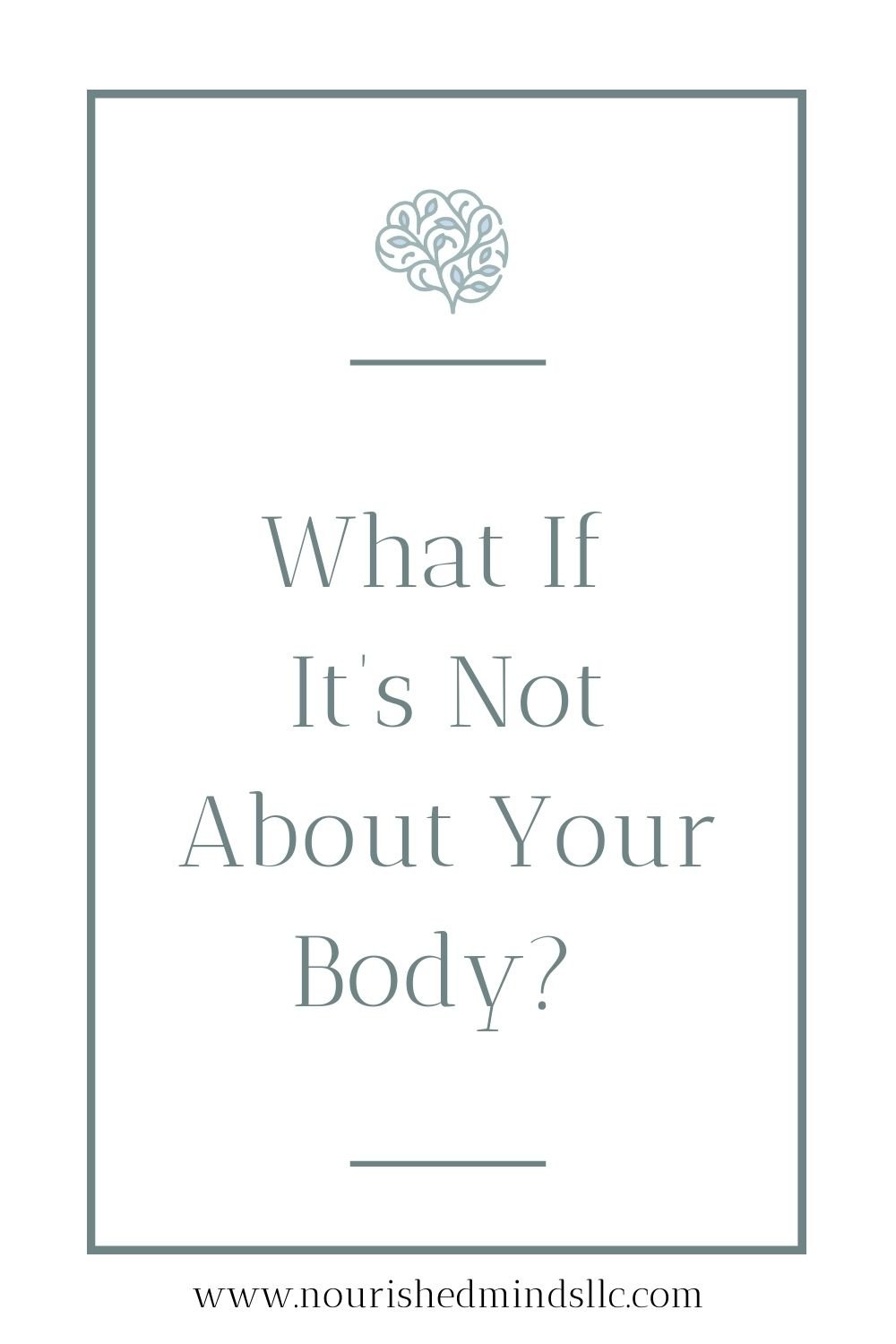
Nourishing the Mind
Our mental health blog offers educational and supportive content for individuals navigating eating disorder recovery, their loved ones, and professionals in the field. We provide valuable insights on fostering a healthy relationship with food and body, understanding the psychological aspects of eating disorders, and implementing practical coping strategies for healing. Through a blend of evidence-based information, therapeutic reflections, and compassionate guidance, our goal is to empower readers with knowledge, reduce stigma, and promote a holistic approach to mental well-being.

What If It’s Not About Your Body?
If you’re tired of fighting your body, this blog is for you. The stories we’re taught about body image play a powerful role in how we see ourselves. But, what if your body isn’t the problem? This blog explores how cultural messages, fear, and learned meaning shape body image far more than the body itself and why healing starts with changing the narrative, not your body. Because your body is not the problem, the stories you have attached to your body are.

The Hidden Side Effects of Malnutrition
Malnutrition can affect anyone at any size. This quick read breaks down the hidden physical, emotional, and cognitive impacts of undernourishment, why symptoms often go unnoticed, and how it can make therapy, coping skills, and daily functioning feel harder. Learn why proper nourishment is essential for mental health and what it means to support a healing, well-fed nervous system.

Parents as the Agents of Change in Eating Disorder Recovery
Learn how to support your child’s eating disorder recovery with confidence and compassion. This blog explores the powerful role parents play as agents of change through structure, boundaries, and FBT-informed principles. Parents are the heart of recovery. This post highlights how to empower not rescue your child through eating disorder recovery.

ADHD and Eating Disorders
Dopamine plays a central role in both ADHD and eating behaviors. In ADHD, fluctuating dopamine levels can make it difficult to engage in “routine” food-related tasks like grocery shopping, meal preparation, and consistent eating. In the context of eating disorders, this same dopamine dysregulation can drive the brain to seek alternative ways to create stimulation, regulate emotions, or experience reward, often through disordered eating patterns.

When “Healthy Living” Turns Unhealthy: Understanding Orthorexia and the Signs to Look Out For
When “healthy living” turns unhealthy: Understanding Orthorexia and what to look out for. In today’s culture, we’re constantly bombarded with messages that glorify “clean eating”, intense fitness routines, perfectly portioned meals, and rigid discipline. While there’s nothing wrong with wanting to nourish your body, there’s a fine line between prioritizing health and becoming consumed by it. Unfortunately, many disordered eating behaviors have become so normalized in our society that they’re often praised rather than questioned. When a fixation on food, exercise, or “healthy living” begins to interfere with daily life, strain relationships, or create emotional distress, it may be a sign of orthorexia or other disordered eating patterns.


